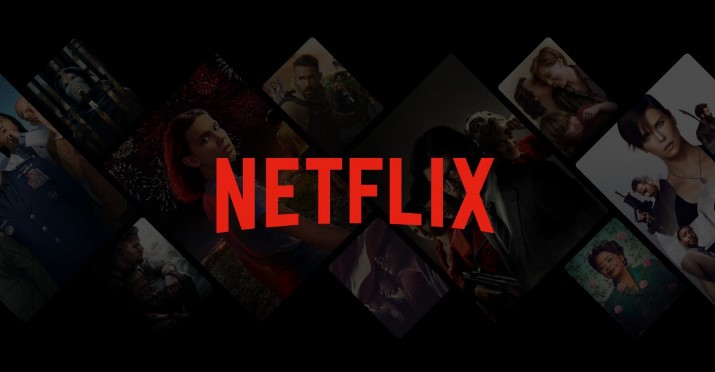In recent times, Netflix’s removal of Christian movies has sparked curiosity and concern among its vast user base. This development has led to an influx of queries, predominantly – “Why is Netflix removing Christian movies?” This article dives into the factors contributing to Netflix’s content selection and removal process, focusing on Christian films, and attempts to shed light on this growing question.
Why is Netflix Removing Christian Movies: A Broad Perspective

Netflix, as a global streaming giant, routinely adjusts its content library to cater to its diverse audience. These decisions are not exclusive to Christian movies or any specific genre; they’re a part of the broader content acquisition and retention strategy of Netflix. When it comes to Netflix’s content removal, it is crucial to understand that it is a part of an ongoing process to keep the content fresh, engaging, and diverse.
Christian Movie Removal on Netflix

The removal of Christian movies or content from Netflix is often mistakenly perceived as an act of bias or censorship. In reality, these changes are driven by viewer ratings, licensing agreements, and the global trend in viewership data. Netflix is committed to promoting a diversity of religious content and does not single out Christian films for removal.
Netflix’s Stance on Christian Movies

Netflix has a diverse range of content spanning different genres, cultures, and languages. Its content selection process aims to cater to this global audience, which is why you will still find a host of Christian movies and religious content available on the platform. While it may appear that some Christian films have been removed, Netflix continually strives to balance and rotate its content selection to cater to a broad spectrum of interests and values, including those of Christian audiences.
Consumer Reactions to Christian Movie Removal on Netflix
The reaction of the consumers to the removal of Christian films from Netflix has been mixed. While some express concern over the reduction of Christian content, others understand that these changes are part of Netflix’s content rotation strategy. The company places utmost importance on consumer feedback, continually assessing and adapting its content strategy based on user behavior, interests, and viewing trends.
Christian Movie Alternatives

For those who are specifically interested in Christian films, there are several other platforms available. Services like PureFlix, Crossflix, and Christian Cinema offer a plethora of Christian content, making them worthwhile alternatives for those seeking this genre. This is not to suggest that Netflix no longer caters to Christian audiences; rather, it emphasizes that there are alternative platforms for those seeking a more concentrated offering of Christian films.
Netflix’s Content Acquisition Strategy
Netflix’s content acquisition strategy revolves around viewership data, market trends, licensing agreements, and user feedback. The company uses advanced algorithms to understand user preferences and provide content accordingly. So, while some Christian films may be removed, new ones are often added, reflecting Netflix’s commitment to cater to its diverse user base, which includes Christian audiences.
Future of Christian Movies on Netflix

Netflix’s content selection process, while dynamic and ever-evolving, maintains its commitment to diversity and inclusivity. This implies a continued presence of Christian films, along with other religious content on the platform. It is essential to view the removal of Christian movies on Netflix as a part of Netflix’s broader strategy to provide diverse and engaging content rather than a targeted action against any particular genre or category.
We hope this article has provided a comprehensive understanding of why Netflix is removing Christian movies and highlighted that this is part of a broader strategy, not a specific targeting of Christian content. Netflix remains committed to providing a diverse range of content to its users, and Christian films continue to be a part of this offering.
Netflix has always and will continue to value its users’ feedback and adapt its strategies to cater to its audience’s diverse interests. Therefore, rest assured that your voice matters, and your preferences are an integral part of shaping Netflix’s content library.
Let us continue to explore, understand, and appreciate the diverse world of streaming, ensuring that our viewing experience is enriched, informed, and engaging.
Netflix’s Religious Content Policies
Netflix’s policies towards religious content, including Christian movies, have been crafted to encourage a diversity of perspectives and stories. The company believes that having a wide array of content helps create a platform where everyone can find something they relate to and enjoy.
Netflix’s aim is to entertain a global audience – a mission that demands a nuanced understanding of multiple cultures and religions. Hence, it balances its content to ensure that it caters to its vast audience base with diverse religious beliefs. Thus, the perceived removal of Christian movies is a part of this balancing act and not an intentional effort to marginalize Christian content.
Economic Aspect
One crucial factor often overlooked in this discussion is the economic aspect, specifically licensing and renewals. When Netflix acquires content, it doesn’t purchase the rights indefinitely. Contracts with content providers come with a stipulated duration, after which Netflix has to decide whether to renew the contract or let it lapse.
These decisions are primarily data-driven, hinting on the content’s popularity, viewership numbers, and cost of renewal. So if a Christian movie is removed, it might be due to the end of a licensing agreement rather than a deliberate decision to remove Christian content.
Christian Movies and Audience Demand
Another contributing factor to Netflix’s content curation process is the principle of supply and demand. Netflix has a powerful algorithm that tracks viewing patterns and preferences. This data helps them determine what kind of content is in high demand and where they should allocate their resources.
It’s possible that some Christian films were removed because they weren’t garnering enough views or were less popular with the audience. However, this doesn’t signify a disregard for Christian content, but rather an adherence to viewer demand and preference trends.
Communication and Transparency
Netflix has always valued transparency and clear communication with its users. It routinely provides information on what content is being added and what is leaving the platform each month. However, it does not generally disclose the specific reasons behind the removal of individual movies or shows.
This is standard practice in the industry due to the complexity of content licensing and renewal agreements. It’s important for users to understand that the removal of certain Christian movies does not reflect Netflix’s stance on Christian content.
Netflix and Independent Christian Filmmakers
Netflix is known for supporting independent filmmakers and producers. This support extends to Christian filmmakers as well. While Netflix may remove some Christian films, it also provides a platform for new, emerging Christian filmmakers to reach a global audience.
The relationship between Netflix and Christian films is a dynamic one, characterized by both the removal and addition of content. It’s a constant process aimed at keeping the platform’s content fresh, engaging, and responsive to viewers’ demands.
Taking Action: What Can You Do?
If you’re concerned about the removal of Christian movies on Netflix, there are several ways you can make your voice heard. Providing feedback to Netflix, engaging in online discussions, or supporting petitions are all valid avenues.
Moreover, exploring alternative platforms focused on Christian content, like PureFlix and Crossflix, can offer more variety in this genre. Utilizing these platforms not only supports Christian filmmakers but also promotes the production of more Christian films in the future.
Also Read: Stranger Things Season 5 Poster: Theories, Plot, and Posters
Conclusion
In conclusion, Netflix’s content strategy is a complex, multifaceted process designed to cater to a global audience. The removal of certain Christian movies reflects the dynamic nature of this process rather than a bias against Christian content. As consumers and viewers, understanding these nuances helps cultivate a more informed perspective and promotes a healthy dialogue about the future of Christian films on streaming platforms. We this guide help you in completely understand the most discussed topic “Why is Netflix Removing Christian Movies”.

